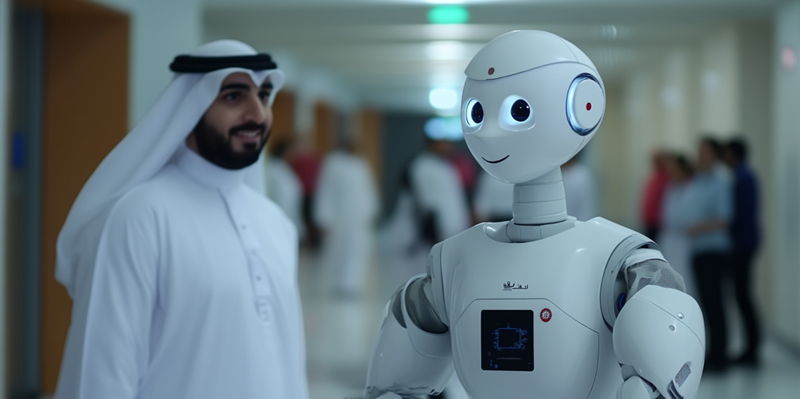The growing need for artificial intelligence (AI) expertise in the UAE has led to significant challenges, particularly in finding adequately trained professionals to meet this demand. SAP’s survey revealed that a substantial 43% of IT decision-makers in the UAE view the lack of skilled employees as a major obstacle to implementing AI-driven solutions. Despite this critical demand, the existing talent pool remains insufficient. Even though 84% of UAE companies plan to hire specialized AI staff within the next 15 months, the shortfall continues to pose a problem.
SAP’s Commitment to Building a Skilled Workforce
Investing in Local Talent Through Training Programs
To address the shortage of AI expertise, SAP is making considerable investments in training programs specifically tailored for university students and Emirati graduates. Marwan Zeineddine, SAP’s UAE managing director, underscores the urgency of cultivating a highly skilled workforce to support the nation’s evolving digital economy. Among the initiatives are the SAP Dual Study and Young Professionals programs designed to give students practical technology experience while pursuing their academic studies. This dual approach not only enhances their technical skills but also ensures they are workplace-ready upon graduation.
The Young Professionals program, which has been operational for over a decade, stands out as a pivotal part of SAP’s strategy, especially in promoting the participation of women in technology fields. Remarkably, over 80% of recent graduates from this program are Emirati women. These programs are meticulously crafted with a focus on business AI, laying down a solid foundation and offering certification to participants. The high global placement rate of 95% for graduates of these programs speaks volumes about their effectiveness. This comprehensive approach ensures that SAP is not only filling the immediate talent gap but also building a sustainable talent pipeline for the future.
Fostering University Collaborations and Hands-On Learning
SAP’s commitment extends beyond mere training, encompassing collaborative efforts through the SAP University Alliances and Dual Study Program (DSP) initiatives. These partnerships play a crucial role in integrating academic learning with practical applications, thereby supporting UAE universities and their students. The University Alliances program facilitates research projects and provides access to SAP software while engaging students in industry partnerships and events designed to prepare them for the SAP ecosystem. These collaborative ventures bridge the gap between theoretical knowledge and real-world applications, equipping students with the skills needed to thrive in an increasingly digital world.
Moreover, the DSP initiative provides hands-on technology experience to over 800 students from universities across the UAE. This approach allows students to complement their academic learning with practical skills, enhancing their overall expertise and employability. Such immersive experiences are invaluable in a field as dynamic and rapidly evolving as AI. By providing students with the tools and opportunities to apply their knowledge in real-world scenarios, SAP ensures that graduates are not only theoretically proficient but also adept at navigating the practical challenges they will encounter in their professional careers.
Expanding Opportunities and Experiences
Launching International Learning Tours
In a bid to further enrich the educational experience and broaden the horizons of Emirati students, SAP will launch an innovative learning tour in 2025. This initiative will provide an opportunity for students from esteemed UAE universities to spend a week at SAP Headquarters in Walldorf, Germany. The program includes workshops that cover crucial SAP technologies and visits to SAP’s partners and affiliate universities in Germany. This international exposure is designed to offer students a global perspective on technology trends, best practices, and the operational dynamics of leading tech companies.
Such exposure is invaluable in the context of AI, a field characterized by rapid innovation and constant evolution. By interacting with international experts and experiencing different technological ecosystems, students can gain insights that are not only theoretical but also practical and immediately applicable. This initiative is a testament to SAP’s commitment to providing holistic education that goes beyond classroom learning. By integrating international exposure into their training programs, SAP ensures that Emirati youth are well-equipped to contribute to the global AI landscape.
Shaping a Sustainable Digital Economy in the UAE
The surge in demand for artificial intelligence (AI) expertise in the UAE has led to notable challenges, particularly in sourcing adequately trained professionals to meet this demand. According to SAP’s survey, a significant 43% of IT decision-makers in the UAE see the lack of skilled employees as a major hurdle in implementing AI-driven solutions. This shortage of qualified talent persists despite a strong intention among companies to expand their AI workforce. In fact, 84% of firms in the UAE plan to hire specialized AI staff over the next 15 months. However, this attempt to close the gap still faces obstacles, as there are not enough professionals with the necessary skills to meet the growing needs. The UAE, known for its aggressive push towards technological advancements, is facing a critical juncture where the availability of proficient AI professionals could significantly impact its strides in innovation. Bridging this talent gap is essential not only for the continued technological progress but also for maintaining competitiveness in a rapidly evolving digital landscape.

